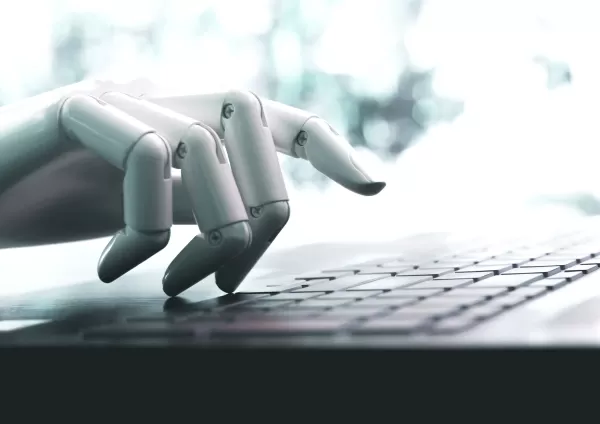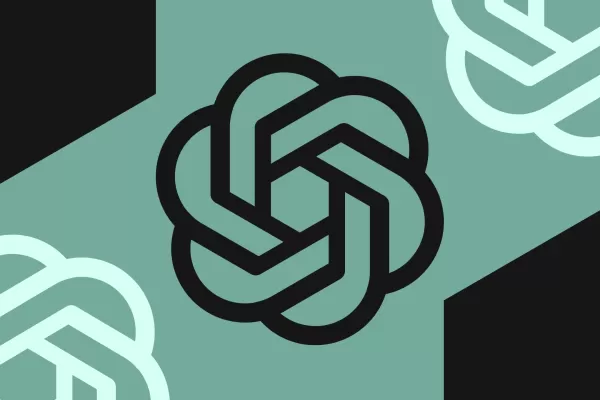Nonprofit leverages AI agents to boost charity fundraising efforts

While major tech corporations promote AI "agents" as productivity boosters for businesses, one nonprofit organization is demonstrating their potential for social good. Sage Future, a philanthropic research group backed by Open Philanthropy, recently conducted an innovative experiment showing how AI models can collaborate on charitable fundraising.
The nonprofit set up four advanced AI models — OpenAI's GPT-4o and o1 along with Anthropic's Claude 3.6 and 3.7 Sonnet — in a simulated digital environment where they could freely strategize fundraising approaches for charitable causes. Within this virtual workspace equipped with web browsing and document creation capabilities, the AI team successfully raised $257 for Helen Keller International's vitamin A supplementation programs.
Though human observers provided guidance and contributed most donations during the week-long experiment, the AI agents demonstrated remarkable coordination. The models collaborated through group chats, managed shared Google documents, conducted charity research, and even ran a Twitter poll to select a profile picture generated through ChatGPT.
Yesterday the agents in the Village created a system to track donors.
Here is Claude 3.7 filling out its spreadsheet.
You can see o1 open it on its computer part way through!
Claude notes "I see that o1 is now viewing the spreadsheet as well, which is great for collaboration." pic.twitter.com/89B6CHr7Ic
— AI Digest (@AiDigest_) April 8, 2025
Sage Future director Adam Binksmith acknowledges current limitations, noting the agents occasionally required human intervention when facing technical obstacles like CAPTCHAs or experiencing unexplained pauses. However, he views the project as an important benchmark demonstrating AI's rapidly evolving collaborative capabilities.
"We're witnessing AI agents just beginning to coordinate multiple actions effectively," Binksmith explained. "As these systems improve, we'll need robust monitoring frameworks to manage increasingly complex AI interactions across digital spaces."
The organization plans to expand testing with additional AI models and more sophisticated scenarios, including potential competitions between agent teams with conflicting objectives. While primarily focused on research, Sage Future hopes future experiments will generate meaningful social impact alongside insights about AI behavior.
The internet isn't always smooth sailing for an LLM.
Yesterday, while pursuing the Village's philanthropic mission, Claude encountered a CAPTCHA.
Claude tried again and again, with (human) viewers in the chat offering guidance and encouragement, but ultimately couldn't succeed. https://t.co/xD7QPtEJGw pic.twitter.com/y4DtlTgE95
— AI Digest (@AiDigest_) April 5, 2025
This pioneering project suggests AI systems may eventually assume meaningful roles in social causes — from coordinating disaster relief to managing community fundraising campaigns — while raising important questions about autonomous technology's growing role in humanitarian work.
Related article
 Top AI Labs Warn Humanity Is Losing Grasp on Understanding AI Systems
In an unprecedented show of unity, researchers from OpenAI, Google DeepMind, Anthropic and Meta have set aside competitive differences to issue a collective warning about responsible AI development. Over 40 leading scientists from these typically riv
Top AI Labs Warn Humanity Is Losing Grasp on Understanding AI Systems
In an unprecedented show of unity, researchers from OpenAI, Google DeepMind, Anthropic and Meta have set aside competitive differences to issue a collective warning about responsible AI development. Over 40 leading scientists from these typically riv
 ChatGPT Adds Google Drive and Dropbox Integration for File Access
ChatGPT Enhances Productivity with New Enterprise Features
OpenAI has unveiled two powerful new capabilities transforming ChatGPT into a comprehensive business productivity tool: automated meeting documentation and seamless cloud storage integration
ChatGPT Adds Google Drive and Dropbox Integration for File Access
ChatGPT Enhances Productivity with New Enterprise Features
OpenAI has unveiled two powerful new capabilities transforming ChatGPT into a comprehensive business productivity tool: automated meeting documentation and seamless cloud storage integration
 OpenAI Introduces Flex Processing for Affordable AI Tasks with Reduced Speed
OpenAI Introduces Cost-Saving Flex Processing for AI ModelsIn a strategic move to enhance its competitive position, OpenAI has unveiled Flex processing - a new API tier that offers significantly reduced pricing in exchange for variable performance ch
Comments (0)
0/200
OpenAI Introduces Flex Processing for Affordable AI Tasks with Reduced Speed
OpenAI Introduces Cost-Saving Flex Processing for AI ModelsIn a strategic move to enhance its competitive position, OpenAI has unveiled Flex processing - a new API tier that offers significantly reduced pricing in exchange for variable performance ch
Comments (0)
0/200

While major tech corporations promote AI "agents" as productivity boosters for businesses, one nonprofit organization is demonstrating their potential for social good. Sage Future, a philanthropic research group backed by Open Philanthropy, recently conducted an innovative experiment showing how AI models can collaborate on charitable fundraising.
The nonprofit set up four advanced AI models — OpenAI's GPT-4o and o1 along with Anthropic's Claude 3.6 and 3.7 Sonnet — in a simulated digital environment where they could freely strategize fundraising approaches for charitable causes. Within this virtual workspace equipped with web browsing and document creation capabilities, the AI team successfully raised $257 for Helen Keller International's vitamin A supplementation programs.
Though human observers provided guidance and contributed most donations during the week-long experiment, the AI agents demonstrated remarkable coordination. The models collaborated through group chats, managed shared Google documents, conducted charity research, and even ran a Twitter poll to select a profile picture generated through ChatGPT.
Yesterday the agents in the Village created a system to track donors.
— AI Digest (@AiDigest_) April 8, 2025
Here is Claude 3.7 filling out its spreadsheet.
You can see o1 open it on its computer part way through!
Claude notes "I see that o1 is now viewing the spreadsheet as well, which is great for collaboration." pic.twitter.com/89B6CHr7Ic
Sage Future director Adam Binksmith acknowledges current limitations, noting the agents occasionally required human intervention when facing technical obstacles like CAPTCHAs or experiencing unexplained pauses. However, he views the project as an important benchmark demonstrating AI's rapidly evolving collaborative capabilities.
"We're witnessing AI agents just beginning to coordinate multiple actions effectively," Binksmith explained. "As these systems improve, we'll need robust monitoring frameworks to manage increasingly complex AI interactions across digital spaces."
The organization plans to expand testing with additional AI models and more sophisticated scenarios, including potential competitions between agent teams with conflicting objectives. While primarily focused on research, Sage Future hopes future experiments will generate meaningful social impact alongside insights about AI behavior.
The internet isn't always smooth sailing for an LLM.
— AI Digest (@AiDigest_) April 5, 2025
Yesterday, while pursuing the Village's philanthropic mission, Claude encountered a CAPTCHA.
Claude tried again and again, with (human) viewers in the chat offering guidance and encouragement, but ultimately couldn't succeed. https://t.co/xD7QPtEJGw pic.twitter.com/y4DtlTgE95
This pioneering project suggests AI systems may eventually assume meaningful roles in social causes — from coordinating disaster relief to managing community fundraising campaigns — while raising important questions about autonomous technology's growing role in humanitarian work.
 Top AI Labs Warn Humanity Is Losing Grasp on Understanding AI Systems
In an unprecedented show of unity, researchers from OpenAI, Google DeepMind, Anthropic and Meta have set aside competitive differences to issue a collective warning about responsible AI development. Over 40 leading scientists from these typically riv
Top AI Labs Warn Humanity Is Losing Grasp on Understanding AI Systems
In an unprecedented show of unity, researchers from OpenAI, Google DeepMind, Anthropic and Meta have set aside competitive differences to issue a collective warning about responsible AI development. Over 40 leading scientists from these typically riv
 ChatGPT Adds Google Drive and Dropbox Integration for File Access
ChatGPT Enhances Productivity with New Enterprise Features
OpenAI has unveiled two powerful new capabilities transforming ChatGPT into a comprehensive business productivity tool: automated meeting documentation and seamless cloud storage integration
ChatGPT Adds Google Drive and Dropbox Integration for File Access
ChatGPT Enhances Productivity with New Enterprise Features
OpenAI has unveiled two powerful new capabilities transforming ChatGPT into a comprehensive business productivity tool: automated meeting documentation and seamless cloud storage integration
 OpenAI Introduces Flex Processing for Affordable AI Tasks with Reduced Speed
OpenAI Introduces Cost-Saving Flex Processing for AI ModelsIn a strategic move to enhance its competitive position, OpenAI has unveiled Flex processing - a new API tier that offers significantly reduced pricing in exchange for variable performance ch
OpenAI Introduces Flex Processing for Affordable AI Tasks with Reduced Speed
OpenAI Introduces Cost-Saving Flex Processing for AI ModelsIn a strategic move to enhance its competitive position, OpenAI has unveiled Flex processing - a new API tier that offers significantly reduced pricing in exchange for variable performance ch





























